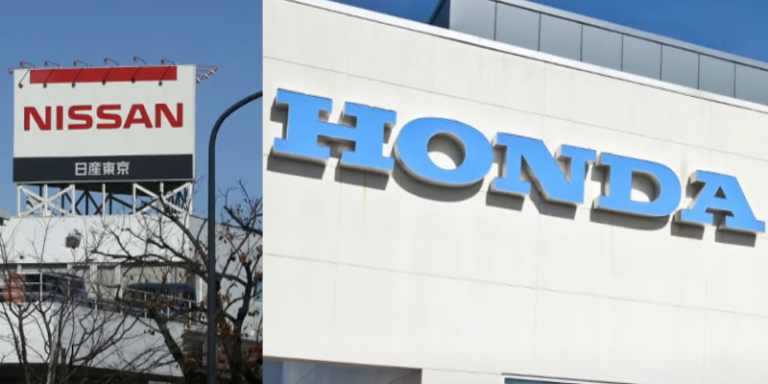With Honda and Nissan starting merger negotiations that might have redefined competition, the automotive industry was on the verge of a massive upheaval. The goal of the $60 billion deal was to create the fourth-largest carmaker in the world, one that could compete with Tesla, Volkswagen, and Toyota. However, the talks came to a standstill, and industry insiders began to wonder if the deal could still be saved.
Honda is still amenable to resuming talks despite the breakdown, but only if Makoto Uchida, the CEO of Nissan, resigns. Different strategic visions and a leadership battle are the root of the impasse; Nissan wanted a more balanced structure, while Honda pushed for complete ownership. Nissan’s future is in jeopardy as it looks for alternatives.
Key Details on the Honda-Nissan Merger Talks
| Category | Details |
|---|---|
| Companies Involved | Honda Motor Co. Ltd, Nissan Motor Co. Ltd |
| Deal Value | $60 billion |
| Primary Dispute | Honda wanted Nissan as a subsidiary; Nissan preferred a holding company structure |
| CEO in Question | Makoto Uchida (Nissan CEO) |
| Potential Impact | Creation of the world’s fourth-largest automaker |
| Reason for Collapse | Disagreements over leadership, strategy, and corporate structure |
| Future Possibility | Talks could resume if Nissan replaces its CEO |
| Alternative Strategies | Nissan may seek partnerships with Foxconn or private equity firms |
| Stock Market Reaction | Nissan shares rose 4%, Honda shares fell 0.5% |
Why Nissan Is Desired by Honda, But Not Its CEO
Honda sees a chance to solidify its position in hybrid and electric vehicle (EV) technology through a merger with Nissan. But governance was a point of contention for the companies. Whereas Nissan favored a joint holding structure, Honda saw Nissan as a fully owned subsidiary. Toshihiro Mibe, the CEO of Honda, became more and more irritated with Nissan’s sluggish restructuring efforts and unstable finances.
The management of Nissan was concerned that its independence would be jeopardized by becoming a subsidiary. The situation was made more difficult by internal conflicts on Nissan’s board, where some members viewed the deal as a hostile takeover and others as a strategic lifeline. Honda’s clear statement that talks could only resume if Makoto Uchida resigned was the turning point.
What Will Happen to Nissan Next? A Business in Crisis
Now that the merger is off the table, Nissan’s future is uncertain. The business is struggling due to dwindling sales and fierce competition from Chinese automakers. As the French automaker contemplates selling off a portion of its Nissan stake, its long-standing partnership with Renault is also in jeopardy.
A collaboration with Foxconn, which has expressed interest in working with Nissan on EV production, is one potential avenue for advancement. This might give Nissan much-needed funding, but it might also mean giving up a lot of control. Nissan’s decision-making process is becoming more complicated as a result of reports that American automakers and private equity firms are looking into investment opportunities.
The Impact of the Merger on the Automobile Sector
A successful Honda-Nissan merger would have had a significant impact on the global auto industry. The combined company would have established Japan as a major player in the EV and hybrid market while having the size and resources to compete with companies like Toyota and Volkswagen. The combination of Nissan’s EV knowledge and Honda’s engineering skills could have improved supply chains and spurred innovation.
Analysts think a merger is still feasible, even though the deal fell through, provided the companies can get past governance issues. Honda’s readiness to reopen negotiations implies that the matter is still open. Major challenges still exist, though, chief among them being Nissan’s leadership structure and opposition to complete integration.
The Path Ahead: Will the Merger Discussions Continue?
Even the most promising deals can be derailed by corporate rivalries and strategic misalignment, as demonstrated by the failed Honda-Nissan merger. However, the tale is not yet finished. Negotiations might resume if Nissan’s leadership changes, which could change the course of the global auto industry.
Honda is currently keeping a close eye on Nissan in anticipation of the ideal moment to resume talks. Nissan’s next actions will determine whether or not that time comes. There is no denying that the automotive sector is changing, and everyone is watching Japan’s two main competitors to see what comes next.


